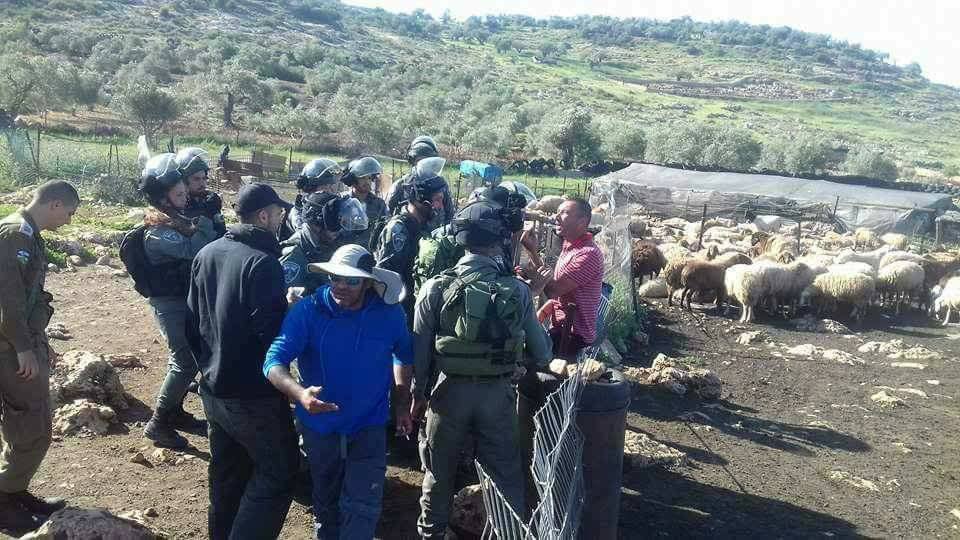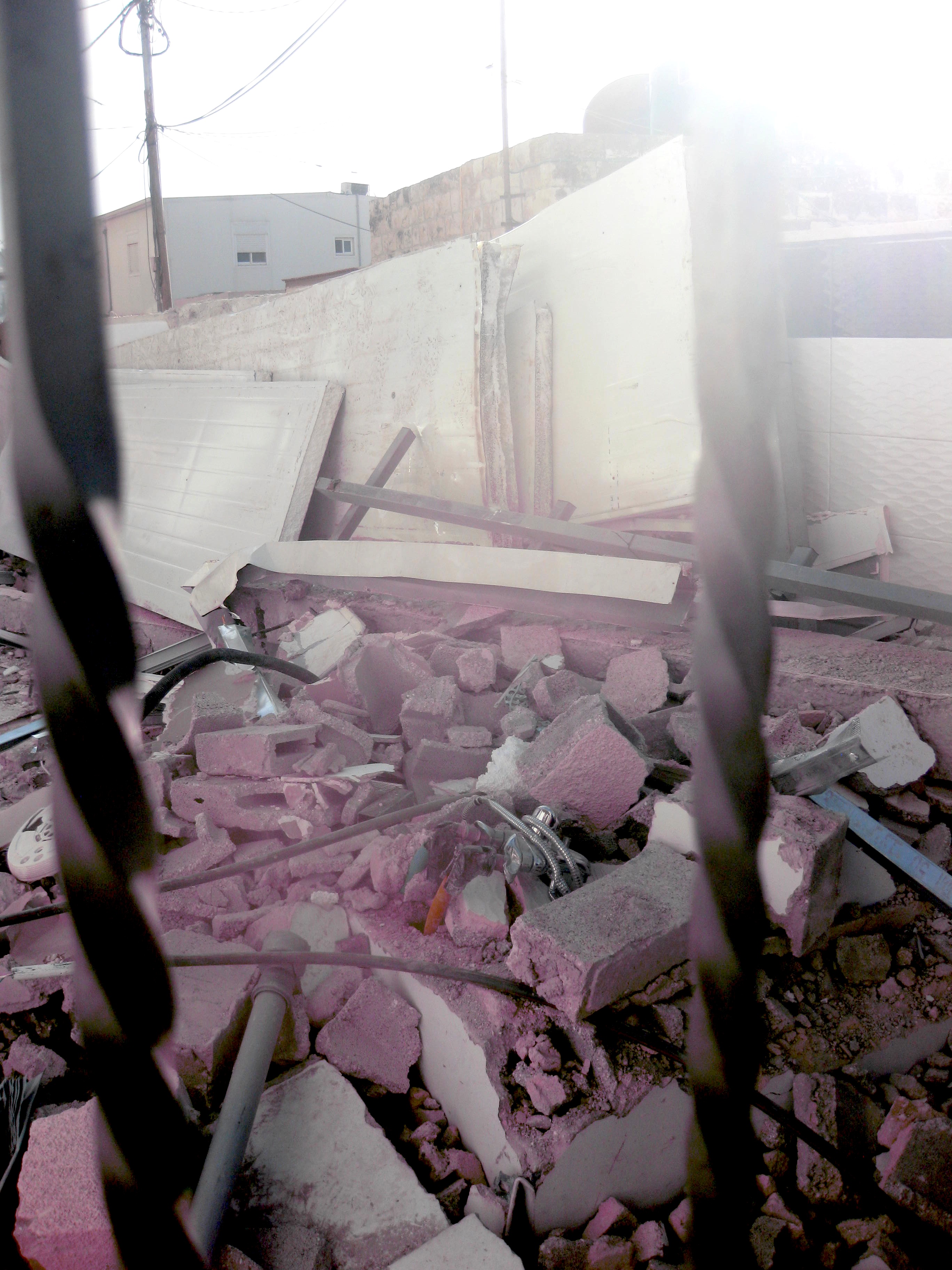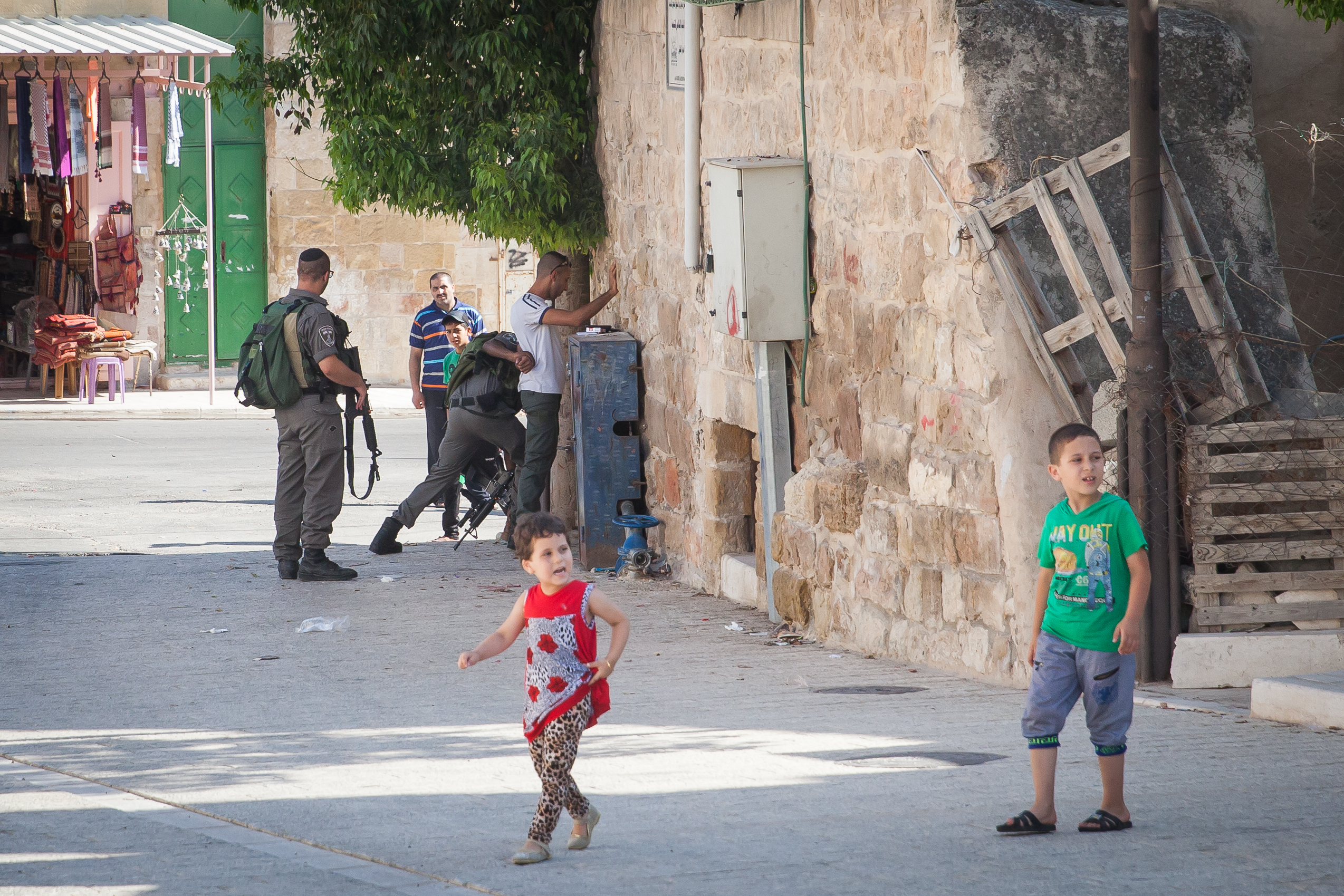Tag: Israeli forces
-
Israeli forces demolish Palestinian farm in Abu al-Ra’eesh, west of Salfit
5th April 2017 | International Solidarity Movement, Ramallah team | Abu al-Ra’eesh, occupied Palestine On the morning of April 5, 2017, the Israeli occupation forces demolished residential tents and six sheep pens in the area of Abu al-Ra’eesh, southwest of Dirbolut, west of Salfit. The structures belonged to the Shheibar family and were located between the…
-
Silwan Occupied
25th December 2016 | International Solidarity Movement |Huwarra team | occupied Palestine Yusef Sheukhy is one out of many Palestinians in Silwan who has already suffered much from the Israeli presence in occupied East Jerusalem. Five of his children have spent time in Israeli jails; the most recent released on 27 May this year. And on…
-
Apartheid and racist restrictions around Ibrahimi mosque
5th July 2016 | International Solidarity Movement, al-Khalil team | Hebron, occupied Palestine During the last days of the Muslim holy month of Ramadan, Israeli froces have implemented further restrictions in the area of the Ibrahimi Mosque in occupied al-Khalil (Hebron.) These restrictions deliberately and exclusively target Palestinians in attempts to further cleanse this area…



